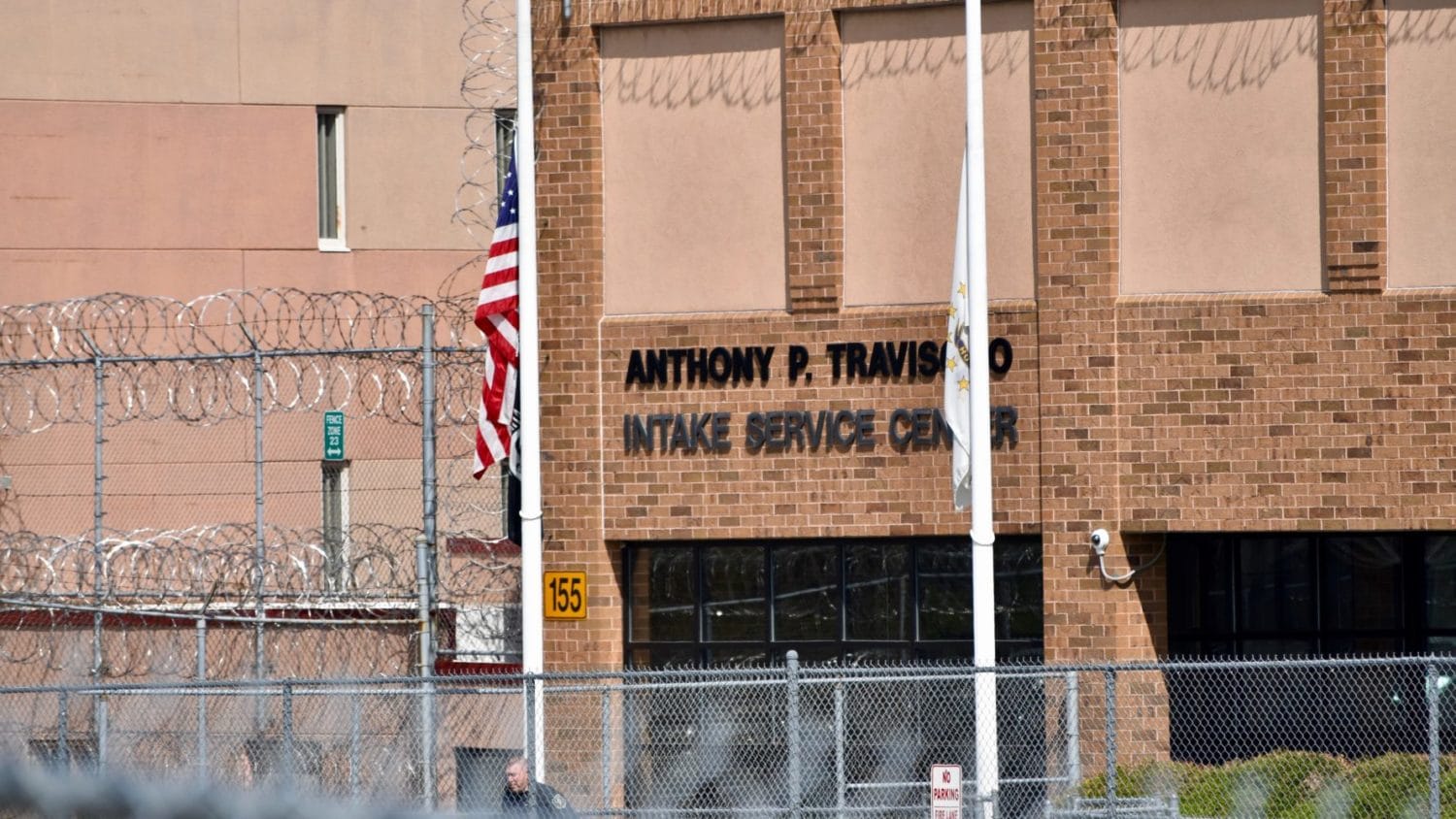Corrections Director speaks about prison conditions, possible reductions in census under COVID-19
“We are encouraging judges to use home confinement for example, where they can, where people are eligible and just kind of reminding judges [to] please help us reduce our census.“ Correction: The section concerning statements by Laura Pisaturo has been updated. Apologies for the misunderstanding. Patricia Coyne-Fague, Director of the Rhode Island Department of Corrections had a phone call today
March 24, 2020, 1:55 pm
By Steve Ahlquist
“We are encouraging judges to use home confinement for example, where they can, where people are eligible and just kind of reminding judges [to] please help us reduce our census.“
Correction: The section concerning statements by Laura Pisaturo has been updated. Apologies for the misunderstanding.
Patricia Coyne-Fague, Director of the Rhode Island Department of Corrections had a phone call today with advocacy groups and some reporters about conditions at the Adult Correctional Institutions (ACI).
Currently the ACI holds between 2500 and 2600 inmates. Director Coyne-Fague has been meeting with the Rhode Island Emergency Management Agency (REIMA) to find, “ways to reduce our census.”
Inmates are being informed, says, Director Coyne-Fague, both verbally and through newsletters, but a caller named Sophie, with the prison advocacy group Black & Pink, pushed back against this, saying that the people her group has spoken to in Medium security have received no such communications. Coyne-Fague said that a newsletter to Medium Security inmates went out last night, so they may not have received it before speaking to Black & Pink.
Coyne-Fague described the prisoners as “calm” and appreciative of the efforts on their behalf. She said that she is looking to have prisoners sew surgical masks, and that all correctional officers and other essential prison staff are wearing surgical masks.
The ACI is searching for ways to increase the use of video court, and also lawyer/client meetings by video.
The prison is providing inmates the opportunity to use telephones, but in smaller groups than usual. Inmates are allowed two free phone calls a week. Each inmate is allowed to send five free letters a week. Prisoners are being encouraged to practice social distancing and soap is free of charge.
Each inmate is provided one hot meal a day in the cafeteria, though this contradicts some reports that Uprise RI has received in the last few days from inmates. Cafeteria workers are wearing surgical masks.
As for sentence reductions, Director Coyne-Fague is encouraging the courts to not require low bail, so that inmates who are being held for lack of a few hundred dollars can be released on their own recognizance. Coyne-Fague is also getting lists of inmates with less that four years on their sentence in the hope of getting some prisoners out by restoring good time, and looking into the increased use of home confinement.
The Medical Director of the Department of Corrections , Dr Jennifer Clarke, described the steps she is taking as a combination of strategies used in nursing homes and by community providers. She is using telemedicine as much as possible. The hope is that steps taken now will allow the prisons to contain the virus quickly if and when it enters the population.
Laura Pisaturo, Chair of the Rhode Island Parole Board, said that she “rescinded a warrant for one parole violator to allow that person to be released to the community with a hearing at a later date.” There is a Parole Board meeting scheduled for later this week. Here is the agenda. Chair Pisaturo is hoping to look at 53 inmates who have earned parole but have delayed release dates, meaning they have a program to finish in prison or they need to establish supports outside the prison.
Tal Frieden, an organizer with Never Again Rhode Island, asked about early release for immunocompromised and elderly inmates. Though medical parole is available in Rhode Island, Director Coyne-Fague said “I don’t have that legal authority” to simply release prisoners.
Since the prison needs to work with the courts and the parole board to release prisoners, “We are encouraging judges to use home confinement for example, where they can, where people are eligible and just kind of reminding judges [to] please help us reduce our census,” said Coyne-Fague.
Update: I was asked to remove the recording.






